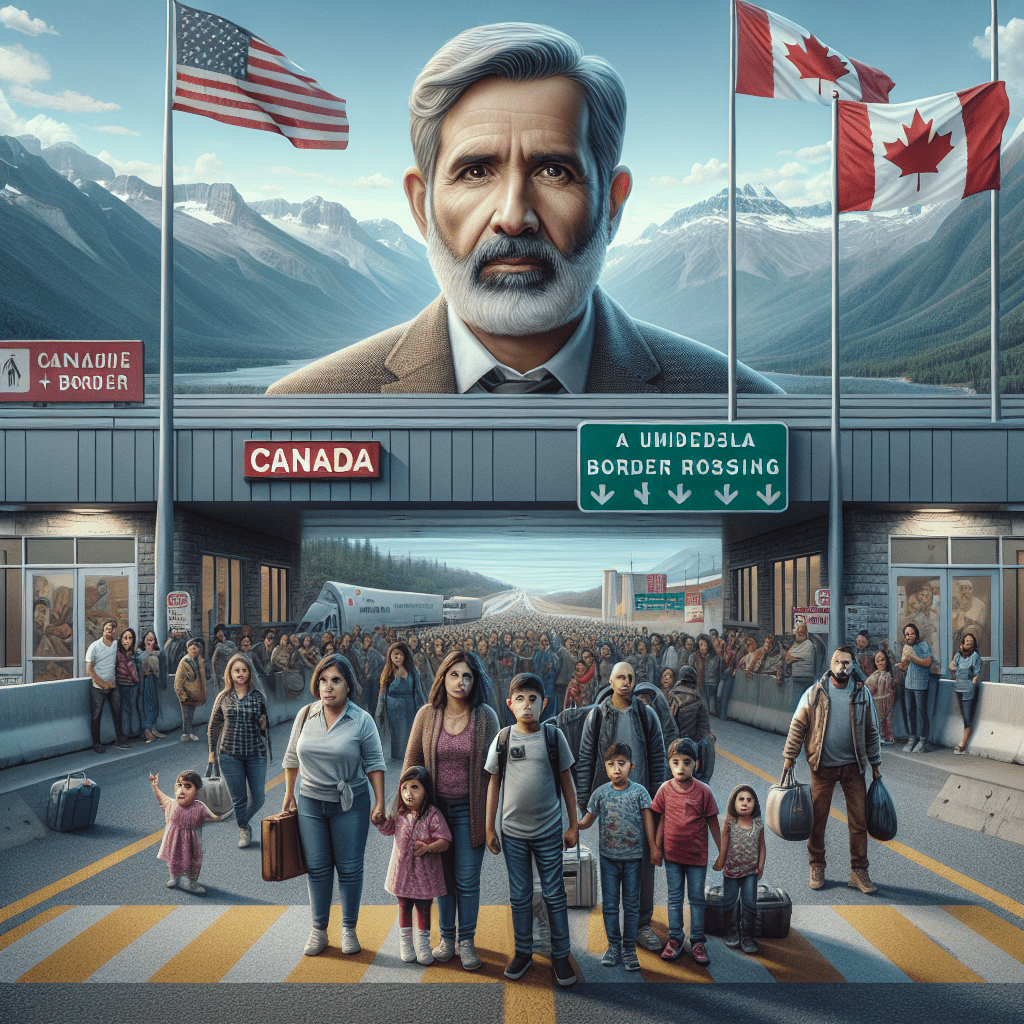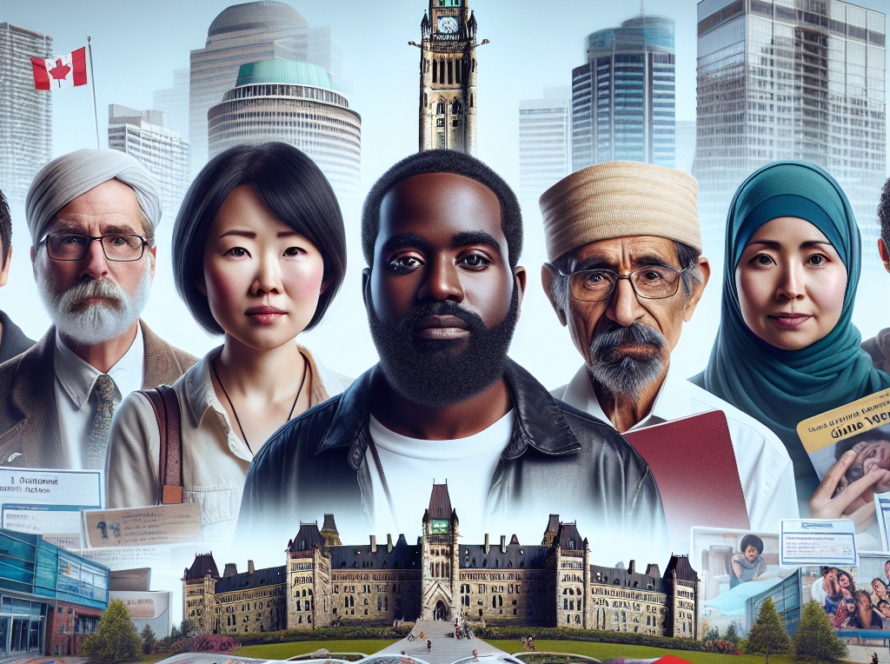Venezuelans Seek Refuge in Canada Amid U.S. Deportation Fears

A New Pathway: Venezuelan Migrants Seeking Refuge in Canada
In light of increasing uncertainty surrounding their legal status in the United States, many Venezuelan migrants are exploring immigration options in Canada. This shift comes as the U.S. government prepares to revoke Temporary Protected Status (TPS) for thousands, leaving many Venezuelans anxious about potential deportation to a nation grappling with severe humanitarian crises.
The Appeal of Canada
The political and social turmoil in Venezuela has forced millions to flee, with many initially seeking refuge in the U.S. Through TPS, the U.S. offered temporary protection; however, recent policy changes threaten to dismantle this safety net. In contrast, Canada has emerged as a viable alternative, primarily because it does not currently deport individuals back to Venezuela. This policy positions Canada as a beacon of hope for those fearing persecution, violence, and instability should they be forced to return home.
The Legal Landscape: Navigating Immigration Options
Desperate to avoid risky or illegal crossings into Canada, many Venezuelans are unaware that they may qualify for legal immigration pathways. Canadian immigration consultants highlight that individuals with skills in healthcare, trades, and other in-demand sectors may be eligible for work permits, study visas, or even permanent residency through humanitarian programs.
Unfortunately, misinformation and fear often drive these migrants toward illegal routes, which can lead to dangerous border crossings. The Canada-U.S. border, though vast and lightly monitored in some areas, presents challenges due to the Safe Third Country Agreement (STCA), which mandates that asylum seekers claim refuge in the first "safe" country they enter, typically the U.S. Consequently, those crossing at official points often face rejection.
However, there is a loophole: migrants who manage to cross unofficially and remain in Canada for 14 days before applying for asylum stand a better chance of being granted refuge. This has led to perilous journeys through forests and waterways, exposing individuals to risks of injury, arrest, and exploitation.
The Safer Alternative: Humanitarian Grounds
Many Venezuelan migrants are unaware of Canada’s programs designed for individuals fleeing crisis situations. These include:
- Humanitarian and Compassionate (H&C) Applications: For those with compelling reasons to stay in Canada, such as risk of persecution or severe hardship in their home country.
- Private Sponsorship of Refugees: Where community groups or family members in Canada sponsor individuals in need.
- Temporary Resident Permits (TRPs): For individuals who may not be otherwise eligible but have compelling humanitarian grounds.
Understanding and applying through these legal channels not only enhances safety but also increases the likelihood of a successful long-term settlement in Canada.
Real-Life Implications
Consider the story of a Venezuelan father who sent his children to Canada ahead of him through proper channels because of their family ties. When he attempted to follow, he was turned back. Left with limited options, he crossed illegally, waited 14 days in hiding, and then claimed asylum. While he eventually received permission to stay, the journey was fraught with danger and uncertainty. Had he been aware of family reunification options or applied for a humanitarian visa in advance, he could have avoided significant risks.
Seeking Knowledge and Support
For Venezuelans contemplating migration to Canada, consulting a licensed Canadian immigration consultant can be a game-changer. These professionals can provide clarity on eligibility, explain viable programs, and assist with the often-complex application processes.
As pressure mounts from U.S. deportation policies, Canada shines as a safer alternative for many Venezuelans. However, the key to making this transition lies in understanding their rights and available options. Legal pathways to Canadian immigration exist and choosing these over illegal crossings can significantly improve the prospects for safety, stability, and opportunity.
Quick Tips for Venezuelan Migrants Considering Canada:
| Option | Who It’s For | Key Benefit |
|---|---|---|
| Humanitarian Applications | Those facing danger in home country | Protection from deportation |
| Work Permits | Skilled workers in demand sectors | Pathway to permanent residency |
| Study Permits | Students seeking education | Potential for post-study work |
| Family Sponsorship | Individuals with close Canadian relatives | Reunification and settlement |
In conclusion, while the path may seem daunting, understanding available immigration routes can help Venezuelan migrants secure a safer and more stable future in Canada.



